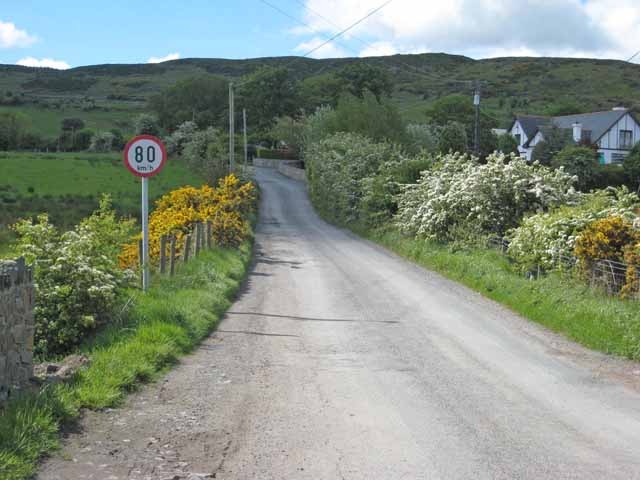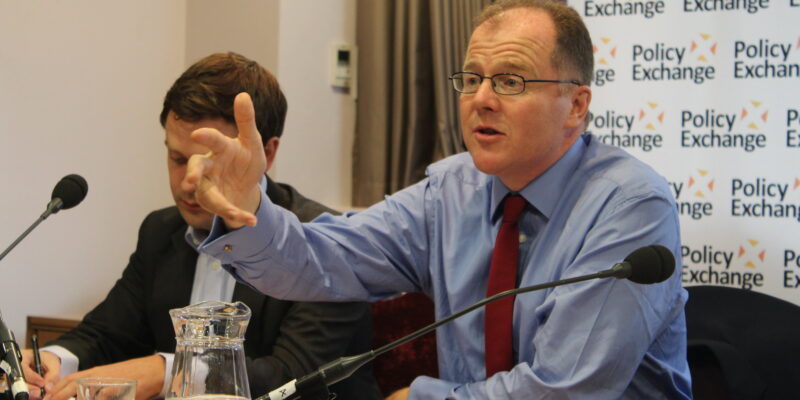Book review: The Irish Border by Katy Hayward
Luke Cooper reviews Katy Hayward’s book
What Do We Know and What Should We Do About the Irish Border? (2021) is published by Sage Publications. Katy Hayward is Professor of Political Sociology at Queen University Belfast and Senior Fellow at UK in a Changing Europe, where she leads a project on the future status of Northern Ireland after Brexit.

Katy Hayward’s book achieves that rare combination of ambition and conciseness. The text concentrates into less than 100 pages a vast range of history, theoretical observations on the meanings and social relations associated with borders, and contemporary policy insight. For those familiar with Hayward’s work her approach to the subject matter will come as no surprise, combining academic diligence with sensitivity to the concerns and hopes of Northern Ireland’s communities.
Problem-solving and critical theory: dialogue, not conflict?
Reading the text, I was reminded of the distinction (well known to students of Politics and International Relations) that Robert Cox once made between problem-solving and critical theory. The former seeks to ‘make relationships and institutions by dealing effectively with particular sources of trouble’ and the latter – critical theory – is, by contrast, ‘directed towards an appraisal of the very framework for action… which problem-solving theory accepts as its parameters’. As Cox was a critical theorist, the distinction had a polemical edge – and it has since assumed something of a canonical status amongst political theorists keen to question and not accept the world ‘as it exists’.
Nonetheless, Cox’s distinction was nuanced. He admitted the ‘strength of… one [approach] is the weakness of the other’, suggesting there is a place for both. And while the difference between these schools of thought was in part political, it was also methodological. For example, measuring public opinion would be a classic problem-solving approach, whereas asking how such sentiments evolved to assume the meanings and assumptions that they did and might, accordingly, change in the future, would be closer to the kind of approach Cox advocated.
Hayward’s book can be read as offering some creative disruption of this textbook distinction, arguably demonstrating that critical theorists need problem-solvers – and vice versa. On the one hand, the book pursues an analytical method in some ways similar to the one Cox advocated, situating the Irish border in a long history of relations between not only Britain and Ireland but the wider social geography of Europe. This international context is critical, of course, not only to the Protestant-Catholic schism in post-Reformation Europe but the very origins of Christianity in Ireland. On the other hand, Hayward is a problem-solver. Maintaining neutrality she keeps a judicious distance from the subject, rather than pursuing an agenda that would force her to take a side on the polity’s divides.
Inevitably this leaves aspects of the text open to critique by those that would be more inclined to emphasise the steep inequality in power relations that defined the early modern colonisation of Ireland by English and Scottish settlers, particularly from the Elizabethan through to the Stuart era, its historic crises and difficult aftermath.
Reflecting her non-partisan approach, Hayward tells this story in a matter-of-fact way (pages 13 – 16). Unfortunately, the short form of the series imposes certain limits on the narrative. Oliver Cromwell and the rump English Parliament’s conquest of 1649 – 1653 is not, for example, discussed – an omission that will likely frustrate Irish nationalists. But the broad history of this period is still presented – and will be especially invaluable to those new to the topic. Its complexity as a time of struggle for religious toleration and greater political liberty, alongside anti-Catholic sectarianism and imperialism is suggested, albeit implicitly (the reader is left to join the dots).
The subsequent Protestant Ascendency (Catholics were not formally emancipated until 1829), which followed these changes in politics, religion, and international relations, pose searching questions of Unionist memory. For instance, consider how in recent years there has been a discussion on improving public knowledge of the British Empire, with local government in Bristol and the National Trust examples of new initiatives in this direction. For moderate wings of Unionism this clearly raises the issue of whether a similar debate on the Protestant Ascendency and the colonial nature of Ireland’s historical ties to Great Britain is possible – or if the subject matter is still simply too sensitive.
Such a discussion need not be polarising or moralistic. It could involve acknowledging what Hayward describes (pages 11 to 13) as Unionism’s deep attachment ‘to the land, and related sentiments of belonging, ancestry and bequeathal’ – and could even retain a considerable degree of distance from today’s constitutional debate.
Problem-solving the constitutional question
These historical lineages only form the background to the core of the book, which primarily appraises the relationship between different identities and levels of government in shaping the evolution of the ‘border question’ as it evolved to play such a central role in the UK’s negotiations over leaving the EU.
The book is particularly strong at foregrounding the human element with first hand accounts from communities that describe how their lives cross both sides of the border (page 42). Another set of highlights is Hayward’s review of the Brexit negotiations and the Irish border question, including an un-dismissive analysis of the ‘technological solutions’ proposal that, unlike much commentary, takes the arguments of its proponents seriously (pages 59 – 62).
But most of all, the strength of the approach Hayward takes lies in how she appraises the question of Ireland’s constitutional future. Here the problem-solving framework brings nuance and concreteness. It does not appraise the question of whether Ireland should be united (which Hayward does not take a view on). But, rather, asks if it is then how could this be organised and managed in a way that gave it real legitimacy and ensured a sustainable peace? This includes the process used to make the decision (how to plan, and when to hold, a referendum) and the constitutional considerations a united Ireland would have to address in order to achieve political stability.
Hayward makes a series of points in relation to this, which probe at different dimensions of the issue. She notes how a united Ireland would have to respect and incorporate significant diversity (pages 71 – 75) – with around 1 in 5 of its population holding some form of British identity. These British citizens are likely be reluctant to become Irish. Would they still be granted equivalent rights to Irish citizens in this new Ireland? And would those born in the six counties of what would then be the ‘old’ Northern Ireland continue to have the right to take out a British citizenship – in the same way that they can currently take out an Irish citizenship, should they choose to do so? When it comes to the institutions, what would happen to Stormont – would there still be some form of ‘Northern Irish’ government?
Added to these constitutional matters (and not mentioned in Hayward’s book, which is focused on the border, its origins and political relations) are a series of other policy issues that will also be prominent in a future referendum; for example, the more comprehensive healthcare and social security systems in the UK compared to Ireland.
Whatever view you take on Northern Ireland’s future, these are critical questions. They arguably require mobilising some of the imagination of critical thinking in combination with the concrete realism of problem-solving.
Hayward’s important book brings clarity and precision to this discussion. It deserves to be widely read.
***
Luke Cooper is an associate researcher at LSE IDEAS, the in-house foreign policy think tank of the London School of Economics. His book, Authoritarian Contagion; the Global Threat to Democracy, was published in June 2021 by Bristol University Press.
January 5, 2022
Brexit Spotlight is run by Another Europe Is Possible. You can support this work by joining us today. The website is a resource to encourage debate and discussion. Published opinions do not necessarily represent those of Another Europe.





